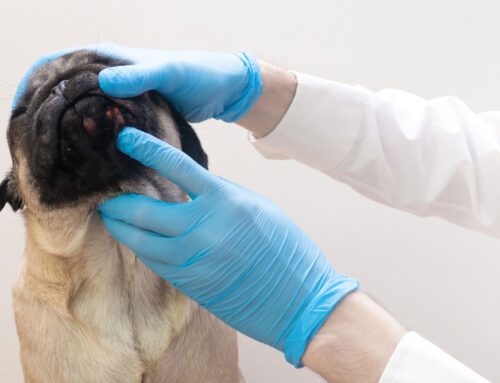With so many vaccine options, you may wonder which ones your pet truly needs. As your pet’s family veterinarian, we want to provide information so that, together, we can make the best vaccination choices for your pet. Let us help you decide the “where, what, and when” of vaccinating your pet.
The “where” of pet vaccination
At Palisades Veterinary Hospital, our veterinarians practice the best methods of choosing, storing, and handling vaccines. Our team works with you to assess your pet’s vaccination needs based on lifestyle, risk, age, and other factors (e.g., travel plans). We know your pet is a precious family member, and we care for their health and safety as if they were our own.
The “what” of pet vaccination
We also decide what vaccines your pet receives based on the latest data and guidelines, because understanding what is available helps us develop the best plan possible. The following descriptions provide information on the “what” of pet vaccinations.
- Rabies vaccination — Rabies, which can spread among animals and people, is a required core vaccination for all cats and dogs. In 2007, September 28 was designated World Rabies Day to promote awareness of this deadly disease. In the U.S., rabies vaccination has decreased the number of human fatalities from 100 per year in the early 1900s to one to two per year today. Yet, in other parts of the world, nearly 60,000 people die each year from rabies. In our global society, vaccination against rabies is a crucial part of your pet’s vaccination plan.
- Canine distemper virus and parvovirus vaccination — These are core vaccines that have greatly reduced the incidence of these deadly canine diseases. Distemper outbreaks still occur, especially in shelter situations, and parvovirus is everywhere in the soil. Protection against these highly contagious viral diseases is necessary for puppies and dogs.
- Leptovirus vaccination — This vaccine is strongly recommended in Arizona. The leptospirosis bacteria is passed from an infected animal through urine, and can remain contagious in soil for months. Leptospirosis causes serious kidney, liver, and eye problems. People can contract leptospirosis from dogs as well as from wildlife, and vaccinating your dog against this disease can prevent life-long problems.
- Bordetella vaccination — Bordetella bacteria are one of many causes of kennel cough, but vaccination lowers the chance of your dog becoming sick, especially if they spend time in groups of dogs, such as boarding facilities.
- Canine influenza vaccination — In an outbreak, dogs can spread canine flu to other dogs before they are sick, causing the disease to spread quickly. Vaccination for canine influenza protects dogs against the canine H3N2 and H3N8 strains, and also is important for dogs in group activities.
- Rattlesnake vaccination — Strongly recommended for dogs who may encounter venomous snakes, this vaccination builds immunity to the toxin of rattlesnakes, copperheads, and cottonmouths. Snake bite is a veterinary emergency, and vaccinated dogs will have a less severe reaction to the venom.
- Lyme vaccination — This vaccination protects against the Borrelia burgdorferi organism, which is transmitted by ticks. Dogs in Arizona have a lower risk of Lyme disease than dogs in other parts of the U.S., but vaccination may be needed, especially if your pet is travelling to an endemic area.
- Feline viral rhinotracheitis and calicivirus (FVRC) vaccination — FVRC vaccination, which protects cats against upper respiratory viruses, whose symptoms include sneezing, runny eyes and nose, and fever, is recommended as a core vaccination for every cat.
- Panleukopenia vaccination — Ninety percent of kittens with panleukopenia do not survive, but the vaccination protects cats and kittens from this devastating infection that causes diarrhea, dehydration, and decreased white blood cells. If a pregnant cat is infected, the kittens have life-long balance problems. Vaccination against panleukopenia is recommended for every cat.
- Feline leukemia vaccination — Feline leukemia is a widespread virus that causes more cat deaths than any other organism. Testing and vaccination is vital for every kitten and any adult cat at risk of exposure to the disease.
The “when” of pet vaccination

Once we have decided what vaccines your pet needs, we will determine when they are needed. Vaccination intervals depend on age, risk, geographic location, and other factors. For example, puppies and kittens receive a series of vaccinations at three- to four-week intervals to build their immunity, while adult pets may receive vaccines at one- to three-year intervals. Rattlesnake vaccine requires an initial series, with boosters every spring when snakes become active. Bordetella vaccination is usually given as an initial series, and then boosted as environmental factors require. Conditions change for your pet over time, so ask our team any questions you have about vaccination frequency for your pet.
The right vaccines, at the right place, and the right time
The “where, what, and when” of vaccinating your pet is best determined by working with your pet’s health care team. At Palisades Veterinary Hospital, we work with you to make the best vaccine choices for your pet, and to formulate a plan to ensure they receive the right vaccines at the right time for protection from these serious threats.







Leave A Comment